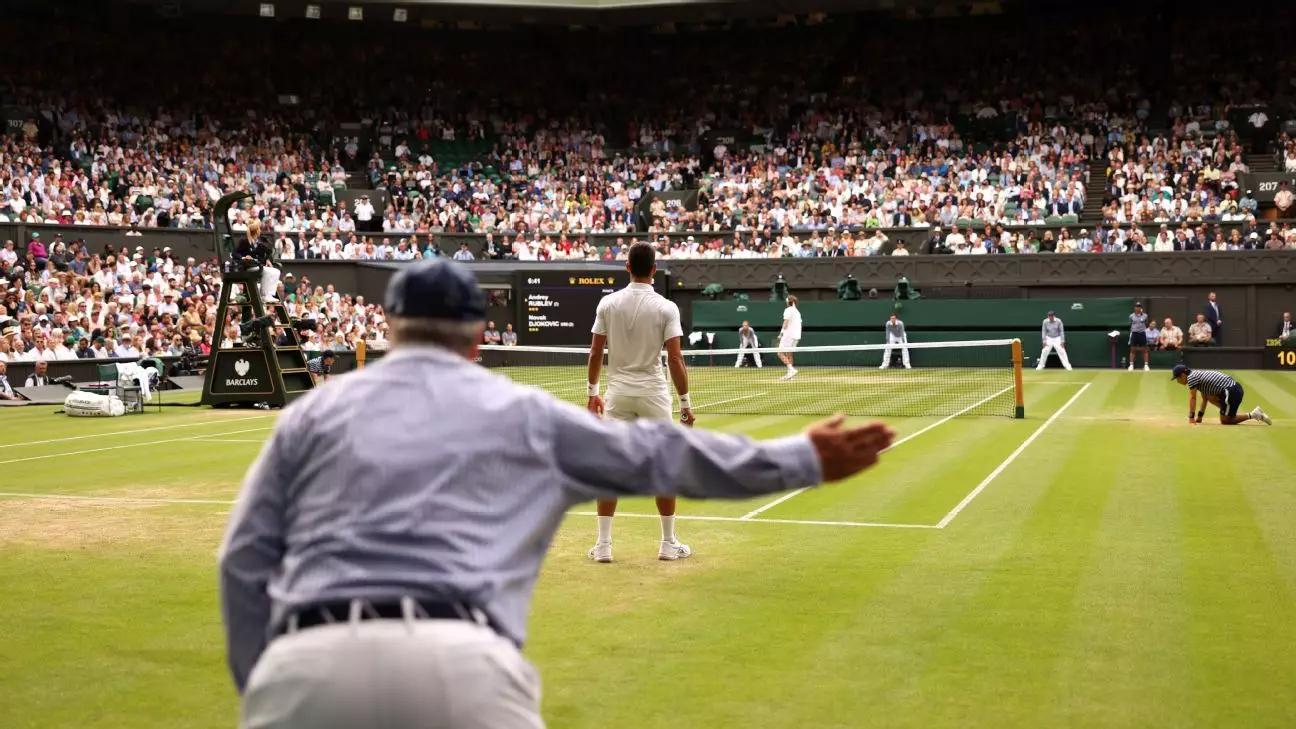In a groundbreaking development for one of the oldest tennis tournaments in the world, Wimbledon has decided to eliminate line judges entirely in favor of a fully automated electronic line-calling system. Announced by the All England Club, this transformation marks a pivotal moment in tennis history, as it will be the first occurrence in the tournament’s 147-year legacy where human officials will not oversee line calls. The decision signifies a broader trend across the sport, aligning Wimbledon with other prestigious tournaments that have integrated advanced technology to enhance accuracy and fairness in officiating.
The automated line-calling technology, powered by AI, will be implemented across all 18 courts at Wimbledon next year. This innovative approach has gradually gained traction in various tennis settings, notably with the introduction of the Hawk-Eye Live system at the US Open in 2020. Over the following years, the ATP Tour has also embraced similar systems, and plans to expand the technology’s application across its schedule by 2025. The elimination of the challenge system at Wimbledon, coupled with the adoption of robotic voice notifications for line calls, marks a significant departure from traditional practices while striving to uphold the precision of match officiating.
Sally Bolton, the CEO of the All England Club, articulated the rationale behind this momentous decision, reflecting on extensive assessments and consultations before reaching such a conclusion. The primary motivation seems to be the desire for “maximum accuracy” in officiating, especially in a sport where margins are often razor-thin. While this technological advancement could enhance the player experience by standardizing conditions akin to those at other tournaments, it also raises questions regarding the role of human officials in preserving the traditions that define Wimbledon.
The acknowledgment of the longstanding contributions of line umpires underscores the respect for the human element in the sport. Bolton’s statement conveys a dual commitment to maintaining the tournament’s rich heritage while also innovating for the future. This balancing act between tradition and modernity is particularly significant for an event that prides itself on its storied history.
In addition to the introduction of electronic line calling, Wimbledon has announced new start times for its singles finals. Both the men’s and women’s singles finals are set to commence later in the day, with provisional start times scheduled for 4 p.m. This change is likely aimed at capturing a larger audience and optimizing viewership, reflecting a contemporary approach to event management that aligns with current broadcasting trends.
The decision to embrace cutting-edge technology signifies a significant shift not just for Wimbledon, but for the sport of tennis as a whole. As this momentous transition approaches, stakeholders within the tennis community will undoubtedly be watching closely to evaluate the implications for player performance, spectator experience, and the very essence of officiating in tennis. Ultimately, the combination of AI technology and a refined scheduling approach may herald the dawn of a new era in the sport, one that balances the excitement of innovation with the charm of its longstanding traditions.


Leave a Reply